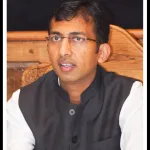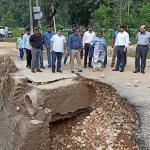The term “digital diplomacy” refers to a type of public diplomacy that involves communicating with the foreign public through digital technologies and social media platforms like Facebook, Twitter, and Weibo, usually at no cost.the idea of digital diplomacy, focusing on the use of digital media in diplomacy and how nations use these tools to pursue their foreign policies, as well as the opportunities and challenges these media present for diplomatic activities. It makes the case that nations must be able to afford to be included in this era of digital diplomacy because they stand to gain greatly from these new diplomatic trends, but it does not replace traditional face-to-face diplomacy. Internet operations in general and digital diplomacy in particular can greatly help in projecting a state’s foreign policy stances to domestic and foreign audiences. Traditional and digital diplomacy coexist and complement one another rather than compete with one another. Crabb (1972) stated, “Foreign policy comprises national objectives and the means to achieve them.
Diplomacy, often called the “engine room” of international relations, involves states using techniques to articulate their international strategy and coordinate efforts to influence foreign governments. It aims to preserve peace, develop goodwill, and ensure cooperation or neutrality through dialogue, negotiations, and other non-violent means.Digital diplomacy, as highlighted by Manor and Segev, focuses on the use of social media platforms by countries to achieve foreign policy goals and manage their global image. Operating at the foreign ministry and embassy levels, it tailors messages to local audiences, considering history, culture, and values. Lewis defines digital diplomacy as diplomats using digital communication tools, while Potter and Hanson emphasize diplomatic practices through digital and networked technologies.
The eight policy goals for digital diplomacy include Knowledge Management, Public Diplomacy, Information Management, Consular Communications, Disaster Response, Internet Freedom, External Resources, and Policy Planning. These goals leverage digital tools for effective communication, crisis response, and the advancement of national interests on the global stage.
Evolution of Digital Diplomacy
Since Lord Palmerston’s initial concerns about the telegraph in the 1860s, subsequent technological advancements like the telephone, fax machines, and the internet have not brought about the end of diplomacy. Harold Nicolson criticized the telephone in the 1960s, emphasizing its potential risks in transmitting information.Ritto highlighted the significance of the telephone, emphasizing its role in improving international relations by facilitating faster communication between nations. The fax system, emerging after 1980, revolutionized diplomatic communication by enabling swift transfer of documents and photos across borders.The internet, according to Friedman, has been a crucial force in global connectivity, leveling the playing field and facilitating direct business and information access worldwide. Abbasov noted the gradual shift from telegrams to modern communication tools, indicating a move towards virtual diplomacy.Present-day applications, prioritizing social networking and multimedia content, are accelerating the shift from traditional communication methods to internet-based platforms. Grant emphasized the internet’s impact on foreign policy, reshaping the global flow of information.In an increasingly connected world, diplomacy is evolving to incorporate technology, with governments using it as a tool for communication, information gathering, and values promotion. Digital diplomacy aims to validate information, provide quick responses, and counter misinformation, adapting to the fast-paced changes in communication styles and technology.
Digital Diplomacy Across the world
In the dynamic landscape of the twenty-first century, nations are leveraging digital platforms such as websites, blogs, and various social media channels to advance their diplomatic efforts. Twitter, in particular, has undergone a significant transformation in foreign policy, providing unfiltered information and fostering global participation across political affiliations and nationalities, as noted by Schwarzenbach (2015). The increasing prevalence of cellphones in developing nations has further democratized the exchange of information, empowering citizens and civil society to hold governments accountable for political actions and statements.
The U.S. Department of State has positioned itself at the forefront of digital diplomacy, embracing 21st Century Statecraft to engage with an expanding international audience. This approach recognizes the impact of new, disruptive forces shaping international relations and calls for a reevaluation of diplomatic agendas. Statecraft in the twenty-first century involves broadening perspectives, introducing new instruments, and adapting principles, utilizing innovation as a valuable resource. The U.S. State Department established the Office of Diplomacy in 2002, pioneering eDiplomacy, and later evolving into the Office of eDiplomacy. With over 150 full-time social media workers across 25 offices, this initiative aims to enhance knowledge sharing and communication, addressing obstacles that led to the 9/11 attacks. Internally, the State Department maintains Diplopedia, a Wikipedia resource with over 14,000 entries.
Other nations have also embraced e-diplomacy. The UK FCO’s Office of Digital Diplomacy, Sweden, Poland, Japan, Germany, Israel, Russia, and France are actively using digital tools to shape diplomatic discourse. The extensive use of Twitter by over 4,100 embassies and ambassadors highlights the global impact of digital diplomacy. India, despite limited resources, has emerged as a digital innovation leader in Asia, with Prime Minister Narendra Modi encouraging ambassadors to stay ahead in digital diplomacy and embrace change (Lewis, 2014).
Benefits of digital diplomacy
In the contemporary landscape, digital diplomacy has become a pivotal component of foreign policy, with states and non-state actors vying for influence in the virtual arena inhabited by over 3 billion people, most of whom access the internet through mobile devices. Executed effectively, digital diplomacy complements traditional methods, assisting nations in achieving foreign policy objectives, expanding international influence, and reaching audiences who may not engage with traditional embassies (Lowy Interpreter, 2015).Fisher (2013) highlights the rapid communication benefits of social media, providing an instantaneous connection with people across borders. Social media platforms offer interactive spaces, facilitating increased engagement and contributing to diplomatic objectives. The cost-effectiveness and ease of use make social media appealing for embassies facing budget constraints, enabling dynamic content distribution, including videos, images, and links.Digital technologies play a crucial role in various aspects of public diplomacy, such as communication during emergencies, consular operations, and information processing.
While financial investments can yield significant returns, the focus is often on cost-cutting. Permyakova (2012) emphasizes the human element’s importance, stressing the need for workers to acquire new skills, engage with online audiences, process electronic data, and produce relevant information. Digital diplomacy differs from traditional diplomacy but, when used wisely, can efficiently and economically enhance a state’s foreign policy efforts. It does not replace traditional diplomacy but complements and strengthens it, serving as an essential element in realizing foreign policy goals. The direct engagement with the public and involvement of non-state actors drive countries to use social media and digital diplomacy to maintain legitimacy and foster relationships in a rapidly changing world (Deos 2015).
Risks of Digital Diplomacy
This is not to say that criticism of digital diplomacy doesn’t exist. Social media’s role in politics has been criticized for being risky and ineffectual. Information about breaking international crises that used to take hours or days for government officials and the media to disseminate is now being relayed in real-time to the world via radio, television, and the Internet, according to Solomon (2000), President of the United States Institute of Peace and a former US Foreign Service officer. Ironically, however, rapid information sharing about nearby and distant events is turning out to be more of a liability for policymakers than a benefit. Put differently, there are dangers associated with digital diplomacy, such as data leaks, hacking, and user anonymity.
An outstanding illustration of information leakage is the WikiLeaks episode. “On November 28, 2010, pandemonium spread among foreign ministries worldwide as WikiLeaks began publishing about 250,000 diplomatic cables sent between US missions worldwide and the State Department in Washington,” according to Manor (2015a). US diplomats’ candid evaluations of world leaders, governments, and their host nations were included in these cables.” Another risk that has existed since the creation of the Internet is hacking.
The internet’s “culture of anonymity” presents another difficulty for digital diplomacy since anyone can assume any identity, use any address, or even target anyone (Yakovenko, 2012).Anyone can mimic, pose as someone else, or try to get into trouble. It’s interesting to note that mistakes are occasionally made by proponents and practitioners of digital diplomacy. For instance, Permyakova (2012) reports that the Swedish foreign minister, Carl Bildt, tweeted something extremely politically incorrect the night before the 2012 World Economic Forum in Davos, drawing a lot of criticism from its microblog followers: “Leaving Stockholm and heading for Davos,” he tweeted. Anticipating tonight’s World Food Program dinner. The problem of world hunger is urgent! Davos. Tweeters criticized the minister right away, labeling his tweet as a “fail.” You would concur that a lavish dinner and hunger do not mix well. Building on various insights from practice approaches, we believe that further study of the digital transformation of diplomacy holds great potential for theoretical, methodological, and empirical advances.
In conclusion, the Internet, particularly through social media, has ushered in a transformative era in global diplomacy. Twenty-first-century statecraft, or digital diplomacy, as defined by Ross (2011), complements traditional foreign policy tools with innovative instruments, leveraging the networks and technologies of our interconnected world. Diplomats utilizing social media platforms like Facebook and Twitter have gained direct access to citizens both within and outside their nations, enabling more effective communication and the accomplishment of diplomatic goals without traditional filters.The landscape of traditional diplomacy has evolved, with foreign affairs ministries adapting their procedures and organizational frameworks to the information and communication technology revolution. While digital diplomacy presents opportunities for nations to address social issues and connect with global audiences, it also comes with challenges, including the risk of overreliance on social media. Nevertheless, the benefits of digital diplomacy outweigh the difficulties.
(Author hails from Achan Pulwama and is Post Graduate student of International Relations at Aligarh Muslim University)





